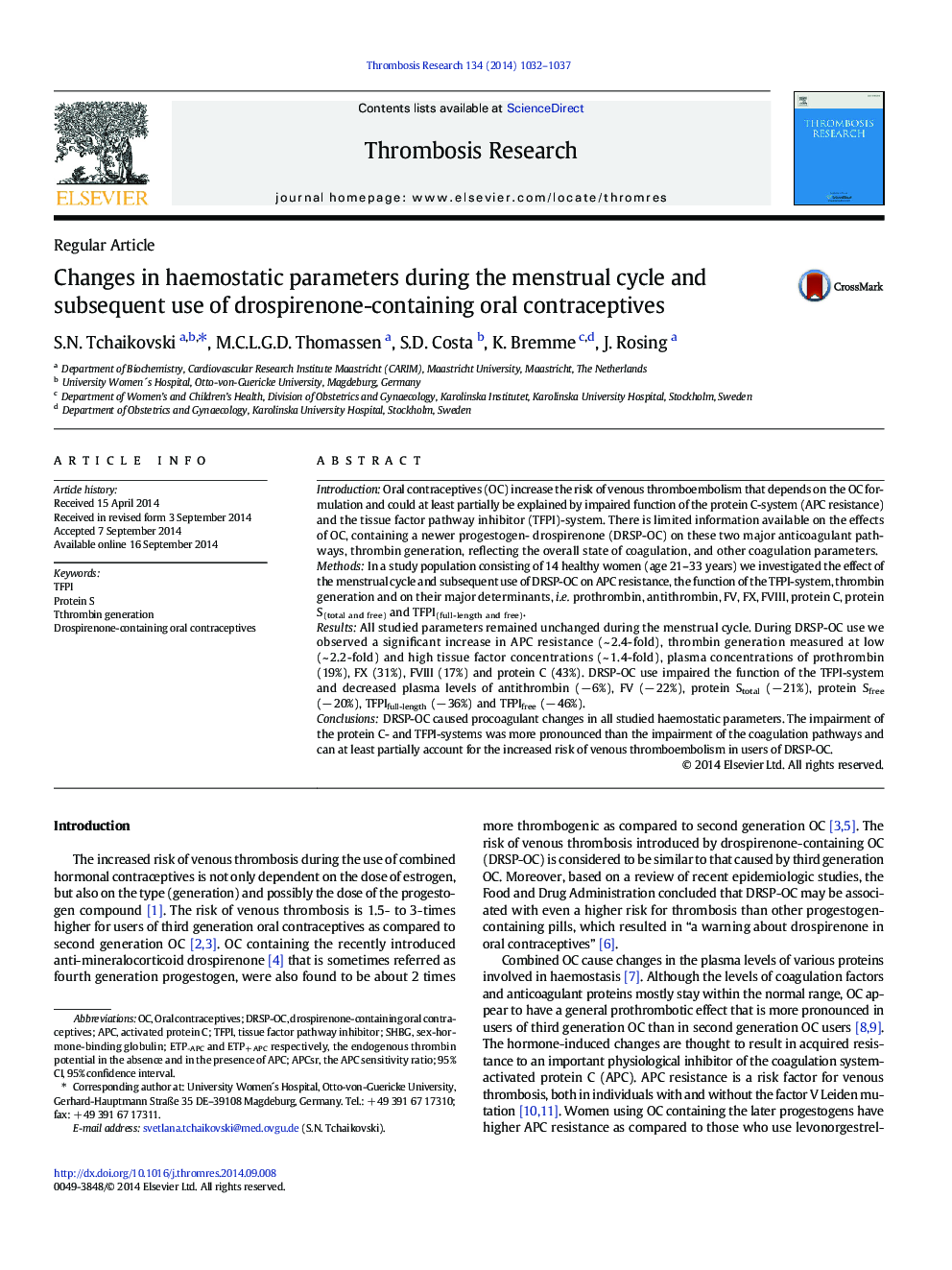| Article ID | Journal | Published Year | Pages | File Type |
|---|---|---|---|---|
| 6001721 | Thrombosis Research | 2014 | 6 Pages |
â¢DRSP-OC decrease the levels of antithrombin, factor V, free and full-length TFPI.â¢Plasma levels of prothrombin and factor X are elevated during use of DRSP-OC.â¢DRSP-OC increase thrombin generation and resistance to activated protein C.â¢OC-induced changes are more pronounced in anticoagulant than in coagulation pathways.â¢No changes in the studied coagulation parameters were found during menstrual cycle.
IntroductionOral contraceptives (OC) increase the risk of venous thromboembolism that depends on the OC formulation and could at least partially be explained by impaired function of the protein C-system (APC resistance) and the tissue factor pathway inhibitor (TFPI)-system. There is limited information available on the effects of OC, containing a newer progestogen- drospirenone (DRSP-OC) on these two major anticoagulant pathways, thrombin generation, reflecting the overall state of coagulation, and other coagulation parameters.MethodsIn a study population consisting of 14 healthy women (age 21-33 years) we investigated the effect of the menstrual cycle and subsequent use of DRSP-OC on APC resistance, the function of the TFPI-system, thrombin generation and on their major determinants, i.e. prothrombin, antithrombin, FV, FX, FVIII, protein C, protein S(total and free) and TFPI(full-length and free).ResultsAll studied parameters remained unchanged during the menstrual cycle. During DRSP-OC use we observed a significant increase in APC resistance (~ 2.4-fold), thrombin generation measured at low (~ 2.2-fold) and high tissue factor concentrations (~ 1.4-fold), plasma concentrations of prothrombin (19%), FX (31%), FVIII (17%) and protein C (43%). DRSP-OC use impaired the function of the TFPI-system and decreased plasma levels of antithrombin (â 6%), FV (â 22%), protein Stotal (â 21%), protein Sfree (â 20%), TFPIfull-length (â 36%) and TFPIfree (â 46%).ConclusionsDRSP-OC caused procoagulant changes in all studied haemostatic parameters. The impairment of the protein C- and TFPI-systems was more pronounced than the impairment of the coagulation pathways and can at least partially account for the increased risk of venous thromboembolism in users of DRSP-OC.
